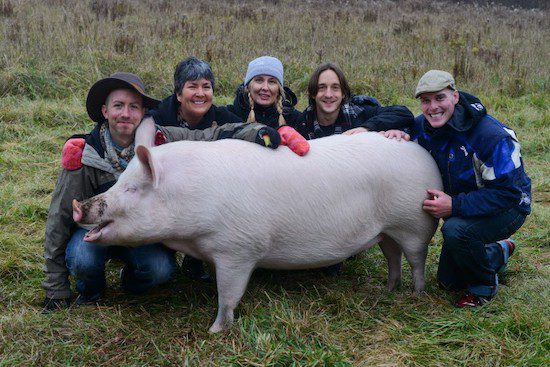


Citizens for Alternatives to Animal Research: In response to the public health crisis involving e-cigarette or vaping associated lung injury, the Centers for Disease Control and Prevention (CDC) have made the dire decision to use animals to study the role of vitamin E acetate and other potentially toxic compounds in e-cigarettes. This decision is totally out of step with the current trend to reduce and eventually eliminate animal testing in regulatory toxicology studies. Decades of studies have shown that significant differences in the anatomy and physiology of the respiratory tract of humans and other animals make animal tests unfit for studying human pathologies. Animal testing is so unreliable that in 2018 the U.S. National Toxicology Program released a “Strategic Roadmap” advising regulatory agencies to “provide more human-relevant toxicology data while reducing the use of animals.” Currently, the CDC has numerous options for studying vaping without animals, including in vitro assays, in silico approaches, computational chemistry and a range of sophisticated tissue models that include 3D organoids and organs-on-chips.
>>>Urge the CDC to use only non-animal alternatives to study vaping risks.
Environmental Working Group: Recent tests by the Food and Drug Administration (FDA) and Environmental Working Group have found asbestos—a known carcinogen—in cosmetics made with talc. Geologically, talc and asbestos can be formed from the same parent rock. Cosmetics companies have known for decades that cosmetics made with talc can contain asbestos. But under pressure from industry, the FDA has for decades allowed voluntary testing methods that are too weak to reliably detect asbestos fibers in cosmetics. To make matters worse, companies have also been able to hide the results of their asbestos tests from the FDA. More than 2,000 cosmetics and personal care products have been found to contain talc, including more than 1,000 loose or pressed powders that could be inhaled. Small amounts of inhaled asbestos can cause mesothelioma and other deadly diseases, even many years after exposure.
>>>Urge the FDA to require the cosmetic industry to use the most sensitive state-of-the-art methods to test for asbestos in cosmetics—and make testing results available to the public.
Ocean Lifeline: How many times have you used your own utensils for take-out or delivered food and the plastic cutlery in the bag just gets thrown in a drawer, recycled or tossed in the trash? Hundreds of fast-food restaurants across the country include single-use plastic cutlery in take-out plastic bags—without asking the customer if they need it. A 2015 study by Ocean Conservancy scientists and their partners found that plastic cutlery is among the most dangerous to ocean animals, such as seabirds and turtles, especially as they break up into smaller to microplastics, which have been found not only in marine environments but also Arctic snow and even human stool. Single-use utensils can take up to 1,000 years to decompose. And most plastic utensils are made of polystyrene, which can release toxic chemicals when heated.
>>>Urge McDonald’s, Taco Bell, Chick-Fil-A, Panda Express, Sonic Drive-In and Whataburger to stop including single use plastic cutlery in every fast food take out bag.
Cause for concern…

- U.S. carbon emissions are expected to fall just 4 percent by 2050 (Rebecca Beitsch, The Hill)
- Temperatures at a Florida-sized glacier in Antarctica alarm scientists (Shola Lawal, The New York Times)
- PFAS found in drinking water linked to tooth decay in children (West Virginia University, ScienceDaily)
- EPA proposes continued use of bee-killing insecticides (Adam Allington, Bloomberg Environment)
- After Americans eat 1.4 billion wings during Super Bowl, activists say that no meat animal ‘suffers more than chickens’ (Shane Croucher, Newsweek)
- Study: Red meat, processed meat hike heart disease risk (Stephen D’Angelo, Cornell University)
- Hundreds of koalas killed in Australia as logging company bulldozes habitat (Jackie Salo, New York Post)
- Brexit: Wildlife ‘at risk’ as U.K. risks losing environmental protections (Emily Beament, The Independent)
- China’s animal trade to spawn more viral outbreaks (AFP via Egypt Independent)
- This is the worst zoo for elephants in the United States (Ryan Deto, Pittsburgh City Paper)

Round of applause…
- A new type of ETF is here: Vegan, environmental and ethical (Lucy Danziger, The Beet)
- We don’t talk enough about animal suffering: That’s why Joaquin Phoenix’s Oscars speech matters (Kelsey Piper, Vox)
- A National Climate Bank would help the U.S. eliminate greenhouse gases by 2050 (Justine Calma, The Verge)
- In rebuke to Trump, Virginia lawmakers vote to block offshore drilling (Nichola Groom, Reuters)
- Animal rights advocates have a new, high-profile activist on Capitol Hill (Judy Kurtz, The Hill)
- Undercover animal rights investigation snares Iowa state senator who sponsored state’s unconstitutional ag-gag law (Baylen Linnekin, Reason)
- Environmental groups will sue to protect endangered Alaska beluga whales from oil and gas operations (Dan Joling, The Associated Press)
- Fifty international experts on elephants have urged the government of Nepal to stop elephant abuse (MyRepública)
- From the Impossible Burger to the Oscars, the rise of veganism in the mainstream (Ashlie D. Stevens, Salon)
- Tennis superstar Novak Djokovic says vegan diet is the secret to his success (Charlotte Pointing, LIVEKINDLY)
- Billboard campaign revealing animal cruelty of dairy industry launches across U.K. (Liam Gilliver, Plant Based News)
- A South Carolina rescue farm is looking for volunteers to cuddle with pigs (Carina Hsieh, Yahoo! Lifestyle)
- Rescue animals could become Florida’s official state pet (Associated Press via U.S. News & World Report)
- New York state may ban sale of dogs, cats and rabbits in pet stores (Sarah Maslin Nir, The New York Times)
Parting thought…

“Most of us realize as children that animals are sentient beings. But then, somehow, for so many people, this truth gets overwritten—by schools teaching old theories, by agribusiness that wants us to treat animals like products, by the pharmaceutical and medical industries who want to test products on animals as if they were little more than petri dishes. But thankfully, scientific and evolutionary evidence for animal sentience has grown too obvious to ignore.” —Sy Montgomery
Earth | Food | Life (EFL) explores the critical and often interconnected issues facing the climate/environment, food/agriculture and animal/nature rights, and champions action; specifically, how responsible citizens, voters and consumers can help put society on an ethical path of sustainability that respects the rights of all species who call this planet home. EFL emphasizes the idea that everything is connected, so every decision matters.
Click here to support the work of EFL and the Independent Media Institute.
Questions, comments, suggestions, submissions? Contact EFL editor Reynard Loki at [email protected]. Follow EFL on Twitter @EarthFoodLife.